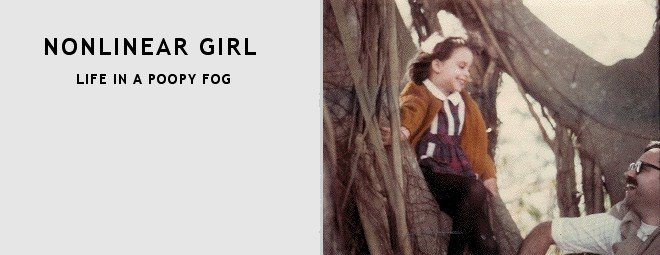HBM suggested people write about causes they believe in that are really doing something. I have chosen two organizations that may seem small and unimportant, what with war, poverty, disease and violence to worry about. But I want to highlight organizations that provided concrete and very needed help to someone I loved. But first some background (otherwise known as the "why we should give a shit" part of the post):
When my grandmother was 85, she was diagnosed with Amyotrophic lateral sclerosis (ALS, often called "Lou Gehrig's disease"). ALS is a progressive neurodegenerative disease that affects nerve cells in the brain and the spinal cord. Essentially, it stops motor neurons from stimulating muscles, thus paralyzing the body bit by bit. My grandmother had always been an active, athletic woman. She was on a basketball team in the 1930s and was an avid golfer who liked to keep her handicap lower than her age. Suddenly she found it hard to move as she once had.
My grandmother had a form of ALS that starts by attacking the motor neurons controlling the muscles in the throat. The disease was very hard on my grandmother, as it progressively robbed her of the things she loved to do and the social connections she'd spent a lifetime nurturing. Initially she found it difficult to swallow. This meant she started to drool, which scared off some of her friends. They acted as if being around a person with ALS could somehow "infect" them with its unsightly symptoms. Problems swallowing also made it hard for my grandmother to eat. Like all members of my family, my grandmother loved food and loved to eat. The loss of mealtime was also hard because it kept her from social meals with friends.
As her muscles atrophied and died, my grandmother began slurring her words. This was again both a physical annoyance and a social loss. People in her social circle started to treat her as if she was mentally deteriorating, rather than just physically ill.
ALS does not affect a person's mental capability, something that is both good and a bit horrifying to contemplate. Being trapped in one's body, progressively less able to move or communicate but still completely aware of one's surroundings - it sounds like an episode of The Twilight Zone, doesn't it? My grandmother, always a good humored and lively woman, found herself unable to keep up in conversations. Either she struggled to get words understood, or resorted to writing her thoughts out. On numerous occasions I witnessed her friends get impatient with waiting for her written notes. They would ask a question, but not wait for the answer, moving on with the conversation as if she wasn't there. It was so hard to witness on my regular weekend visits. I could tell it was very dispiriting to my grandmother. But being my grandmother, she did not complain.
My grandmother did not complain about what she was losing to ALS, but she was clear about what she wanted; she wanted to stay in her home. Luckily, she lived in a one story house that she and my grandfather had bought in the early seventies. There was one step from the garage to the house, and the rest was flat. With a few changes (grab bars in the bathroom, removal of some rugs, rearranged shelves and drawers in the kitchen) she was able to stay in the home she loved. Being near the mementos of her life with my grandfather and surrounded by their books, art and photographs meant a lot to her. Eventually she agreed to have some help and hired a woman to assist with bathing, shopping and household cleaning.
My grandmother was also clear about what she did not want. As her form of ALS impacted her throat muscles first, she knew it would be only a matter of time before her difficulty swallowing and talking was compounded by breathing problems. Once she could not breathe on her own, a respiration would be required to keep her alive. This would limit my grandmother's world in a way that her other symptoms had not fully managed to. Although she did not want to die, my grandmother did not want to live constrained to her bed or the couch. Without leaving the house, she would have to rely on visitors who would surely dwindle once she could not speak at all. Talking on the phone would be out too. Without stimulation, was life worth living? For my grandmother, the answer was no. She decided that when she needed a ventilator, she would refuse it, even though that meant she would die.
When her breathing got increasingly labored, my mother was summoned to her mother's bedside. Within about a day of my mother's arrival, my grandmother passed away. It was not the horrible, gasping death we associate with asphyxiation. According to my mother it was much more peaceful, with my grandmother slipping away, her breathing and pulse stopping while my mother held her hand.
I loved my grandmother, her sense of humor and her sense of fashion. In her later years she favored the rhinestone-heavy shirts and bright colors many older women seem inexplicably attracted to. Lucky for me, she'd always been a clothes horse, and something of a packrat. When my family cleaned out her house, I found some gems. The brilliant blue chinese silk dress she'd had made to her measurements while on an around-the-world trip. A black three-quarter length coat with fur trim from the 50s. A brown knit cap of the style that just came back into fashion a few years ago. Plus boxes and boxes of hats. Her basement was filled with hat boxes. Amazing, beautiful hats that probably last saw the light of day in the 60s. I crammed as many as I could into my luggage, and now display them in the entrance to my house, along with a photo of my grandmother in her wedding gown and another of her, my mother and me on my wedding day.
Looking back at what I have written, I miss my grandmother and wish she had not missed meeting Ada. But I am also happy that her death was of her choosing. After several years of finding herself increasingly at the mercy of her body, my grandmother's death was the last thing she got to decide. My grandmother's life with ALS was not easy and I would not wish that fate on anyone. It was, however, better than it could have been, and this is thanks to the ALS Association and specifically my grandmother's local chapter. In addition to providing information and support, through the ALS Association my grandmother had access to an ALS-knowledgable nurse who acted as a case manager, following her care and ensuring that the physicians knew what care she was receiving, heard about drugs and treatments that can slow the disease's progress and were otherwise able to provide the best care to my grandmother. This nurse knew my grandmother and checked in with her regularly. With most of her family across the country, my grandmother relied on this nurse for so much, and she delivered. With my grandmother's consent, the nurse also kept in contact with my mother so that my mom knew what was going on with my grandmother's treatment and condition. And all of this was provided free to my grandmother.
When my grandmother was told she had six months to live, I doubted it could be true. But her deterioration in those last months was rapid, and I am so glad that I was able to fly out to visit her one last time before starting a new job in Oregon. Two weeks after I left, she died. Those last six months my grandmother had some additional help, in the form of hospice nurses. On frequent visits, those nurses made sure my grandmother was comfortable and safe. They checked on her physical and emotional health, and were the ones to alert my mother that she should come to Pennsylvania when the end looked imminent. In her final months, my grandmother was comforted and cared for by these nurses. Knowing people were checking on her and waiting to hear her out meant a lot to me.
You may never know someone with ALS, and I can't ask you to financially support an organization just because it helped someone I loved. But I can ask you to support this type of organization, that not only funds research on a disease, but supports and cares for individuals with a deadly condition. We all know someone in our life who has died from cancer, heart disease, alzheimer's. Support, with your time or your money, organizations that care for people who are sick. Without these organizations, the burden of illness is that much heavier on people who lose not only their physical autonomy and capability, but many of the social connections and joys of their previous lives.
As for hospice, this is something I support for both personal and political reasons. Yes, my grandmother was directly impacted by hospice. But hospice is also good public policy. Particularly in the United States, where we spend a disproportionate amount of money on care in the final months of a person's life, something must change. Just because we have technology does not mean it should be used in all cases. As my grandmother knew, technology can keep people alive for months and years. But the costs are both financial and surviving with greatly reduced quality of life. Allowing people to choose not to live under those conditions is both fiscally sound - using scarce resources on prevention and chronic care management can help many more people maintain health and quality of life over much longer periods - and allows people to more fully control their lives and their deaths.
Thanks for making it this far. As a granddaughter and a health policy nerd, I thank you.
Thursday, September 21, 2006
For My Grandmother
Labels:
Family,
Group Blogging
Subscribe to:
Post Comments (Atom)















Oh, Nora! Your Grandmother would be so proud of your generosity of spirit.
ReplyDeleteI feel the same way about support for DMD (my nephew's illness) - I would love for people to support the search for a cure, but I understand if it is too distant for them. So I only wish that people will support that which touches them, and that they will support organizations, such as hospice organizations, that help a variety of people.
Thank you.
She sounds wonderful.
ReplyDeleteWhen my grandmother neared the end of her life, I remember wishing and praying not that she'd live, but that she'd die peacefully and when she was ready--that neither she nor anyone around her would keep her alive too long. Now I'm wishing the same for my husband's grandmother. Thanks for this post.
I do believe in our rush to solve healthcare needs we often treat it as a need for a program. In truth our health, our wellness is not for x doctor or y hospital.. instead there should be networks of various supports for our whole life.
ReplyDeleteAnd yes for the sick especially every avenue of compassion and care imaginable.. This must come from everyone/everywhere for each individual. Thank-you for this reminder.
What a beautiful tribute to a lovely woman, mother and grandmother. It always lessens the sting just a little to hear of a family who was helped through a difficult time by hospice caregivers. Im sorry for your loss.
ReplyDelete